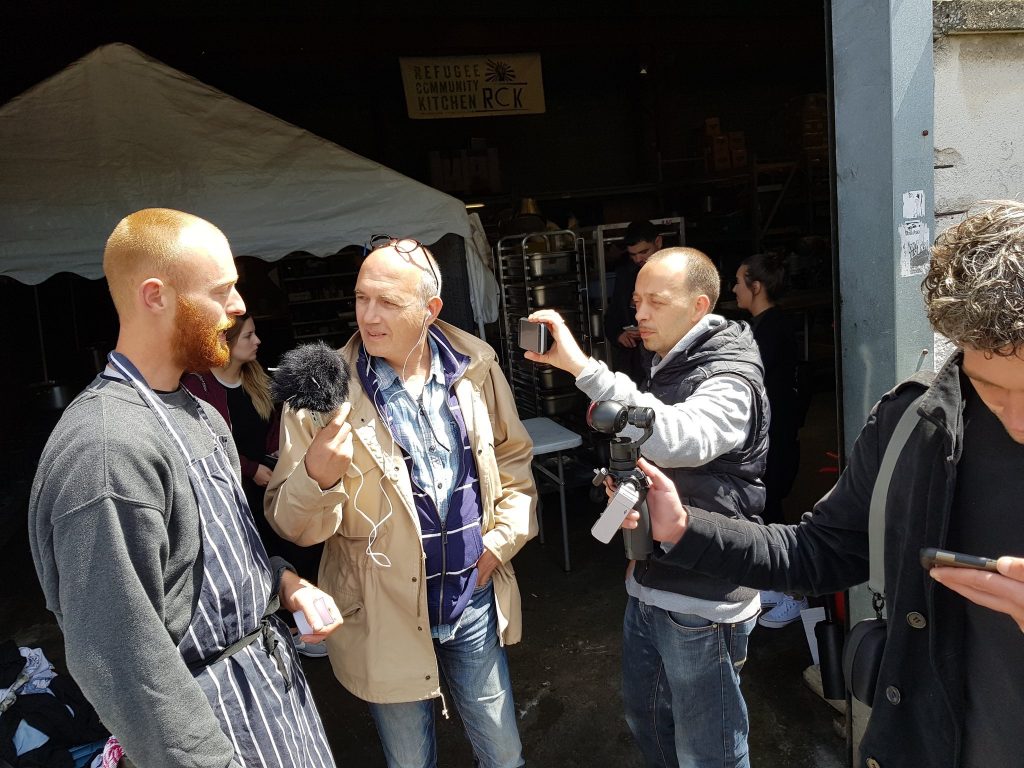If you’re a publication that wants to work with me, here is a helpful guide.
As freelance journalists are being mercilessly sucked into the black hole that is the so-called gig economy, some publications are now offering advice on how to make the process of exploitation as smooth and painless as possible. And so it happened that I read this piece on i-D, which is one of the titles of the progressive and hip Vice media conglomerate.
In order to maybe some day write something for i-D, we need to and format our pitch into three paragraphs, and come up with ideas that fit the brand, and tailor it to their “house style”, and find editors on Twitter, and stop whining when we get a rejection — all that without being paid a penny of course.
This is obviously the wrong way around. I didn’t enter journalism to end up working on a plantation where I have to kindly ask if I can pick some bananas. A publication like i-D is nowhere without writers and photographers, so they should pitch us. Here’s a handy guide for you, i-D editors (and their counterparts at other publications):
Formatting
Please send no more than two or three paragraphs and explain clearly what it is you want. “Oh, we thought you might do something about XYZ” is not a clear explanation. We don’t have time for that.
Also, stop trying to make us conform to your tone of voice. You hire me, so you get my voice, not your own. The more eyeballs a publication attracts, the more editors, chief-editors, section editors and what have you they employ to keep everything in check with their commercial format. Making freelancers write just like the rest of your publication is written is nothing but branding to support ad sales and subscriptions, and it leads to bland McJournalism. Publishing writers in their own tone of voice, on the other hand, is art and freedom of speech.
Finding what topics to have us write about
One of the most useful things to do before pitching to a journalist is to see whether or not the story is a good fit. Read some other articles from the journalist you’re pitching to. This is incredibly helpful because it lets you see if your article or one very similar to what you’re pitching has already been written by that journalist, and also if the style of your pitch will work with this author. That way you can see if the journalist you’re reaching out to does celebrity interviews, lists, first-person led experience features or brand-led product round-ups, and can direct your ideas to where they might fit best.
Dealing with rejections
Dealing with rejection is probably the shittiest part of being an editor or publisher. If you care a lot about what you’re pitching, hearing that it’s not a good fit for an author can be a real blow. While rejections get easier to swallow over time, it’s important to remember that they’re not in any way a comment on your abilities as a high-ranking media official.
There can be a million reasons for a rejection. Maybe, as mentioned above, the style of your pitch just isn’t a good fit for the journalist. Or maybe he has something too similar already published or in editing stages for another publication. If you’re just starting out and trying to hone your craft and improve as a magazine publisher, don’t be afraid to ask why something was rejected, and what might be a better fit for next time you get in touch.
Also, please understand that we can’t respond to every pitch. If you don’t get an answer in two weeks, we are probably not interested this time. But don’t let that discourage you!
Billing
Please accept that according to our Terms and Conditions, you will have to pay us using a highly complex billing system that will take you two days to comprehend. Thank you for your understanding.
A final word
Having freelancers compete for work in today’s journalism marketplace in what is for all practical purposes a pitch competition is a disgrace. Two years ago, I attended an event in Amsterdam, De Gouden Freelancer (I had been nominated for some kind of award) and they had what they called a “story market”: freelancers could pitch their story idea in one minute to a panel of editorial chiefs who were sitting on a stage, and those pitches would then be auctioned off to the highest bidder among them. It was a miniature of how journalism has been degraded by publishers and their gatekeepers into a cheap commodity. It was humiliating and disgusting. It was right there and then that I decided that I wasn’t going to pitch anything to these people ever again. Pitch me if you want something.
